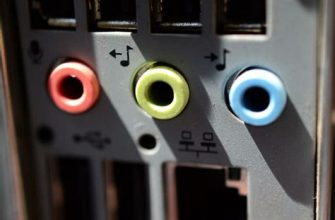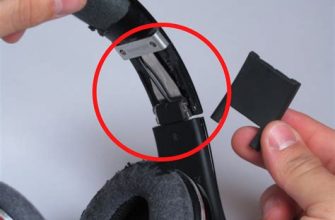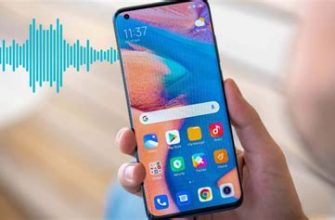In this digital age, it's no secret that headphones have become an integral part of our daily lives. Whether we are commuting to work, working out at the gym, or simply relaxing at home, headphones provide us with the solace and escape we crave. However, as we indulge in the melodic world of music, it is crucial to be mindful of the potential risks to our auditory system.
Preserving our sense of hearing while immersing ourselves in the world of headphones can be a delicate task. Fortunately, there are simple steps we can take to safeguard our ears and enjoy our music without compromising our long-term auditory health.
One of the first and most vital steps towards maintaining healthy hearing is selecting the right pair of headphones. Investing in high-quality headphones with features designed to minimize sound leakage and reduce background noise can help reduce the temptation to turn up the volume to unsafe levels. Additionally, opting for noise-canceling headphones can significantly decrease our exposure to outside noises, decreasing the need for excessively loud volumes.
Aside from selecting the right headphones, it is important to be aware of our listening habits. Many of us have the tendency to get lost in the rhythm of our favorite beats, unconsciously cranking up the volume to intensify the experience. However, consistently exposing our ears to loud sounds can lead to irreversible damage over time. By practicing moderation and limiting our listening sessions to no more than 60% of the maximum volume, we can minimize the risk of auditory fatigue and potential hearing loss.
The Significance of Safeguarding Our Auditory Health
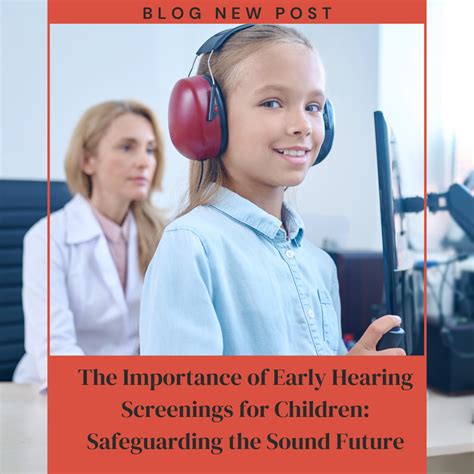
Preserving our ability to hear is an essential aspect of maintaining overall well-being. Sustaining auditory health plays a crucial role in our daily lives, allowing us to engage with the world around us effectively. It enables us to communicate, enjoy music, appreciate nature, and even stay safe by being aware of potential dangers. Therefore, taking proactive steps to protect our ears is vital for a fulfilling and healthy life.
Understanding the importance of auditory preservation involves recognizing the profound impact hearing loss can have on various aspects of our lives. Hearing impairment can lead to difficulties in communication, both at personal and professional levels, resulting in social isolation, reduced job opportunities, and diminished quality of life. Moreover, experiencing hearing loss can impact cognitive functions, such as memory and attention, and contribute to mental health issues like depression and anxiety.
- Preserving our auditory health helps us maintain strong connections with loved ones, allowing for meaningful conversations and shared experiences.
- By prioritizing our hearing, we can continue to enjoy the beauty of music, appreciating the melodies and lyrics that bring joy and enrich our emotions.
- By safeguarding our hearing, we ensure our safety and well-being, as intact auditory functioning alerts us to potential hazards and alarming situations in our environment.
- Maintaining auditory health can contribute to long-term cognitive vitality, enhancing memory, attention, and overall mental well-being.
- Preserving hearing capacity empowers us to participate actively in various settings, from professional meetings to social gatherings, fostering success and meaningful connections.
In conclusion, recognizing the importance of preserving our hearing is fundamental to prioritize auditory health. By taking appropriate measures to protect our ears from potential harm, we can continue to enjoy the myriad of experiences and benefits that sound offers, ensuring a fulfilling and vibrant life.
The Consequences of Auditory Impairment and Its Impact on Daily Life
When our ability to perceive sound declines, it can have far-reaching effects on our day-to-day experiences and overall well-being. The consequences of auditory impairment extend beyond simply a reduced ability to hear sounds; they can impact communication, relationships, and even one's emotional and cognitive functioning.
Living with auditory loss can pose challenges in various aspects of life, ranging from difficulties in understanding and participating in conversations to feeling isolated and disconnected from social environments. Individuals with hearing loss may struggle to comprehend speech, especially in noisy environments, which can lead to frustration, anxiety, and a sense of exclusion.
Additionally, auditory impairment can significantly affect one's personal relationships. Miscommunication and misunderstandings may arise, leading to strained relationships with family, friends, and colleagues. The inability to fully engage in conversations can create barriers and hinder the formation of meaningful connections.
Moreover, hearing loss can impact an individual's professional life. Difficulties in understanding instructions, participating in meetings, or communicating effectively with clients or colleagues can hinder career progression and limit opportunities for advancement.
Emotionally, hearing loss can contribute to feelings of frustration, embarrassment, and low self-esteem. Struggling to hear and actively participate in social interactions can erode confidence and lead to withdrawal from social activities and engagements.
Furthermore, auditory impairment can negatively impact cognitive functioning. Research suggests that individuals with hearing loss may experience accelerated cognitive decline and an increased risk of cognitive impairment, including dementia. The cognitive load associated with trying to hear and understand sounds can divert mental resources from other higher-level cognitive processes.
In conclusion, the consequences of auditory impairment reach far beyond the physical act of hearing. It can affect communication, relationships, emotions, professional opportunities, and cognitive well-being. Recognizing the impact of hearing loss is crucial in promoting the importance of preserving and protecting our hearing to maintain a fulfilling and vibrant life.
Understanding the Impact of Headphones on Auditory Health
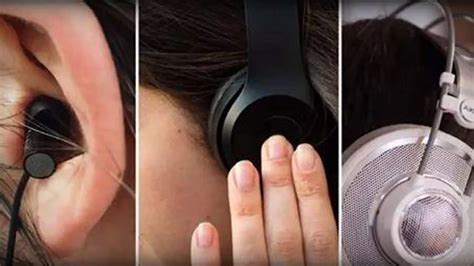
Consistent exposure to loud sounds through the prolonged use of audio devices like headphones can have detrimental effects on our hearing system. It is vital for individuals to comprehend the potential harm that headphone usage can cause and take necessary precautions to safeguard their auditory health.
| Section | Content |
|---|---|
| 1 | The Mechanism behind Headphone-Induced Hearing Damage |
| 2 | The Role of Volume and Duration |
| 3 | Understanding Different Types of Hearing Loss |
| 4 | Impact on Different Age Groups |
| 5 | Warning Signs and Symptoms |
| 6 | Preventive Measures and Safe Listening Practices |
| 7 | Technological Advancements to Reduce Risk |
This section aims to delve into the fundamental understanding of the adverse effects that headphones can have on our hearing abilities. By exploring the mechanism behind headphone-induced hearing damage, we can gain insights into the potential risks associated with excessive or unsafe headphone usage. Understanding the correlation between volume levels, duration of exposure, and hearing damage is crucial in identifying ways to mitigate these risks and ensure the preservation of our auditory health.
The Impact of Headphones on Ear Health: Unveiling the Science
In the realm of modern technology, a device as ubiquitous as headphones has revolutionized the way we experience audio. With their convenience and immerse sound quality, headphones have become an integral part of our everyday lives. However, beneath the surface of entertainment lies a lesser-known reality: the potential harm headphones can inflict on our ears. Understanding the science behind this phenomenon is crucial in preserving our auditory well-being.
Acoustic Overexposure:
One of the primary reasons headphones can harm our ears is through acoustic overexposure. When listening to music or other audio content at high volumes for prolonged periods, the delicate structures of our ears, such as the hair cells in the cochlea, are subjected to excessive sound pressure. This prolonged exposure to loud noises can lead to irreversible damage, resulting in hearing loss or tinnitus, a persistent ringing sensation in the ears.
Sound Isolation:
Another factor contributing to the potential harm caused by headphones is sound isolation. Using headphones tends to create a closed environment where external sounds are blocked out, allowing for a more immersive audio experience. However, this isolation can be dangerous as it tempts users to raise the volume to unnatural and potentially harmful levels. This constant exposure to loud sounds can gradually degrade our hearing capabilities over time.
Listener Preferences:
Understanding individual listener preferences is vital in addressing the potential harms of headphones. Everyone perceives sound differently, which means that what may seem like a moderate volume to one person could be excessively loud to another. Personal preferences and the desire for an intense auditory experience may lead individuals to unknowingly expose their ears to damaging sound levels.
Mitigating the Risks:
While the science behind how headphones can harm our ears is concerning, it is essential to recognize that responsible headphone usage can significantly mitigate these risks. Taking breaks, limiting exposure to high volume levels, and regularly checking your hearing can all contribute to preserving ear health. Additionally, using noise-canceling headphones or adjusting equalizer settings to minimize background noise can help create a more balanced soundscape, reducing the need for excessive volume.
By understanding the science behind the potential harm caused by headphones, we can make informed decisions and take proactive steps to protect our ear health. Balancing our love for music and audio immersion with responsible usage will ensure that our ears continue to enjoy the soundscape of life for years to come.
Tips for Maintaining Healthy Hearing During Headphone Usage
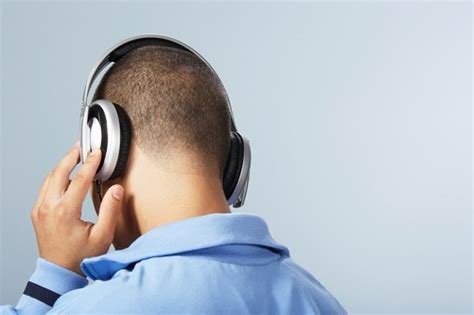
In this section, we will explore various strategies and precautions that can be implemented to safeguard your auditory health while enjoying your favorite audio content through headphones. By applying these tips, you can minimize the potential risks associated with prolonged headphone use and ensure the longevity of your hearing abilities.
1. Adjust Volume Levels Mindfully:
 | Be cautious when setting the volume on your headphones. Lower volume levels can significantly reduce the risk of noise-induced hearing damage. Consider using the 60/60 rule – listen at no more than 60% volume for no longer than 60 minutes at a time. |
2. Take Regular Breaks:
 | Frequent breaks from headphone use can provide an opportunity for your ears to rest and recover. Try to incorporate short intervals every hour to give your auditory system a chance to recalibrate. |
3. Invest in Noise-Canceling Headphones:
 | Consider using noise-canceling headphones. With their ability to block external sounds, you can enjoy your audio content at lower volume levels, reducing the strain on your ears and minimizing potential damage. |
4. Use Over-Ear Headphones Instead:
 | Opt for over-ear headphones instead of in-ear or on-ear models. Over-ear headphones tend to distribute sound more evenly and reduce the direct impact on your eardrums, decreasing the risk of hearing damage. |
5. Keep Volume Levels Moderate in Noisy Environments:
 | When using headphones in noisy environments, avoid turning up the volume excessively to combat external noises. Instead, try to find a quieter setting or use noise-canceling features to maintain a comfortable and safe listening experience. |
6. Practice Proper Hygiene:
 | Regularly clean your headphones to prevent the accumulation of dirt, wax, or bacteria, which can affect their sound quality. Maintaining clean headphones not only enhances your listening experience but also reduces the risk of ear infections or other hygiene-related issues. |
By incorporating these tips into your headphone usage routine, you can safeguard your hearing health and continue to enjoy audio content without compromising your auditory abilities.
[MOVIES] [/MOVIES] [/MOVIES_ENABLED]FAQ
What are some ways to prevent hearing loss while using headphones?
There are several ways to prevent hearing loss while using headphones. Firstly, you should always listen at a comfortable volume and avoid turning up the volume too loud. Additionally, taking regular breaks from headphone use can help reduce the risk of hearing damage. It is also recommended to invest in high-quality headphones that provide good sound isolation, as this can help eliminate the need for high volume. Lastly, using noise-cancelling headphones can also be beneficial, as they reduce the background noise, allowing you to listen at a lower volume.
How long should I use headphones before taking a break?
The recommended duration for using headphones before taking a break is around 60 minutes. It is important to give your ears regular rest intervals to prevent overexposure to loud sounds. During these breaks, it is a good idea to remove the headphones completely and let your ears rest in silence. This will allow any potential damage caused by prolonged headphone use to recover.
Are there any specific headphone features that can help preserve hearing?
Yes, there are certain headphone features that can help preserve hearing. One important feature is sound isolation. Headphones with good sound isolation help block out background noise, allowing you to listen at a lower volume without the need to increase it to overcome external sounds. Another feature is noise cancellation. Noise-cancelling headphones actively reduce the ambient background noise, further reducing the need for high volumes. Investing in headphones with these features can greatly contribute to preserving your hearing health.
Can listening to music with headphones cause permanent hearing damage?
Yes, listening to music with headphones at high volumes for prolonged periods can potentially cause permanent hearing damage. When the sound levels are too loud, the delicate hair cells in the inner ear can become damaged, leading to hearing loss. It is important to be mindful of the volume levels and take necessary precautions to prevent any long-term damage. Regular breaks, using headphones with good sound isolation, and keeping the volume at a comfortable level are all essential in preserving your hearing health.

